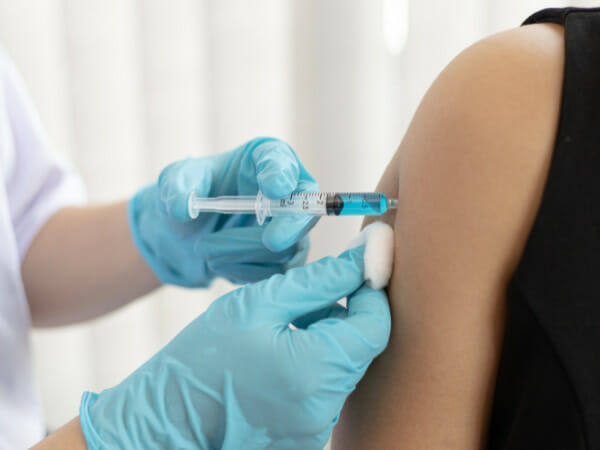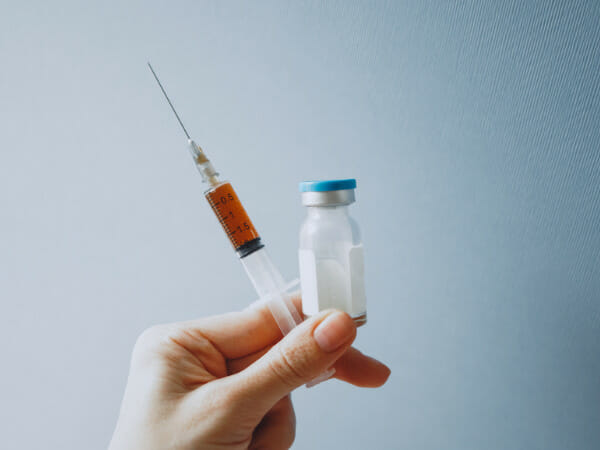Why is COVID vaccine hesitancy still a thing?
After two years of the novel coronavirus, hesitancy to COVID-19 vaccines is still going strong. You may find these folks protesting against this protection against the pandemic. No matter what others say, they march on to defend their stance.
Some people shame and chastise them for their beliefs, but it seems to only strengthen their resolve. Is it truly something about the shots that motivate COVID-19 vaccine hesitancy? Perhaps they have other reasons why they dislike the COVID shots?
We will start by sharing more details about the anti-vaccine trend. Next, we will go through the various reasons why people feel skeptical about taking the corona shots. After that, we will recall the reasons why people should take the vaccines and how you may promote vaccine confidence.
What is vaccination hesitancy?

As the name suggests, it’s when people are iffy to get their COVID shots. For some of these folks, “iffy” might be a gross understatement. Some of them are truly vocal in their feelings against the vaccine.
You may have seen these people on the nightly news or on social media. They take to the streets to protest while news reporters struggle to get their questions answered.
Some of them meet online and fill public threads with their dismay at how people still comply with the COVID guidelines. The public has made a general term for them: “anti-vax.”
People outside this movement are quick to dismiss them as silly or foolish. Some believe herd immunity is enough. Others see the COVID-19 vaccine as a part of a larger conspiracy.
Strangely enough, the anti-vax people also say similar things to those who have taken the COVID-19 vaccine. However, it would not be fair to assume that these folks simply have something wrong with them.
It would be best to see where their vaccination hesitancy originates. If you look deeper, you may realize that their reasons might be outside COVID-19 vaccine confidence.
Why do people refuse to take COVID vaccines?
If you look closely, a lot of respectable and intelligent people have strong opinions against the COVID shots. Some have amassed achievements that prove their expertise and experience.
If there are anti-vax people who are level-headed and sensible, then why do they keep on resisting the vaccines? As I’ve suggested, some of their reasons aren’t even related to COVID.
Look closer, and you’ll see a wide range of non-medical problems that are now affecting public health. Here are the ones that experts found:
#1. People feel anxious about vaccine safety.
#COVID19 vaccine hesitancy has become a major issue in some parts of the 🌍. It's more difficult to make an informed health decision when your choice is being interfered with by misinformation, and that can be deadly – @DrMikeRyan pic.twitter.com/hjrjvyYMEB
— World Health Organization (WHO) (@WHO) November 28, 2021
It’s easy to see why some people are vaccine-hesitant when you remember how fast the pharmaceutical companies released them. This took much faster than other shots.
According to the World Economic Forum, traditional vaccine development took at least ten years. That’s because the experts want to make sure the shots will be safe for everyone who takes it.
It presents a chart of the three stages of creating a vaccine. Check it, and you’ll notice that most of the time is spent on testing the vaccine. After all, people present different factors that may alter its effects.
Why did the vaccines take less time to make? You can compare this to skills. For example, as you get better at cooking, you take less time preparing and put more quality into your meals.
Together with new technologies, pharma companies are able to create the COVID vaccines in less time. More importantly, they can make sure they’re safe.
Read More: Why You Need A Booster Shot
#2. Some folks prefer herd immunity.
Others say they should just wait until their bodies get it. They believe their immune systems should be able to get used to COVID-19 until it’s nothing more than the flu.
This is a terrible idea as many countries have been experiencing major surges because of this mentality. To illustrate, let’s take a look at two countries: Denmark and Hong Kong.
A few weeks ago, Denmark just eased most of its COVID restrictions. You won’t even see them wearing masks in public often. Its health minister explained the move on CNN.
Health Minister Magnus Heunicke said that they see the cases going down despite the initial spike of around 50,000 cases since easing restrictions.
At the time of writing, the daily COVID case count was 16,578. Heunicke points to the country’s high vaccination rate as the reason for this decline. He hopes that this trend continues until they reach a new normal.
On the other side of the world, COVID-19 vaccine hesitancy is going strong in Hong Kong. From being lauded as the few countries that beat the coronavirus, they now have a new outbreak.
Back then, their cases were only around 5,000 per day. At the time of writing, Hong Kong recorded 34,466 cases in a single day. Herd immunity didn’t form and defend these people despite the major spike in cases.
#3. Folks don’t trust the World Health Organization and other authorities
Vaccine hesitancy can be caused by: negative beliefs based on myths, misinformation http://t.co/hSJHBjguj9 #vaccineswork
— World Health Organization (WHO) (@WHO) August 18, 2015
We may think that we can have a 100% objective view when speaking with someone. In reality, we tend to judge someone’s message based on who they are.
Even the most intelligent people fall for this, so it’s easy to see why some of them exhibit vaccine hesitancy. You’re probably familiar with the public’s common opinion regarding politicians.
For many years, people have assumed that they’re all motivated by greed, and they would lie to get anything they wanted. However, politicians are the ones implementing the COVID mandates.
Some people even catch these leaders not following the guidelines they set for the public. For example, UK Prime Minister Boris Johnson made headlines several times for partying during the lockdowns.
On the other hand, people don’t trust pharmaceutical companies as they hold so much power over vaccines. The fact that they’re worth billions of dollars just magnifies these assumptions.
They may also have strong feelings against the World Health Organization, the Centers for Disease Control and Prevention, and other health authorities.
Sadly, some people even go as far as being skeptical about healthcare workers and healthcare professionals. Worse, they may even resort to violence against these people.
Put these factors together, and you’ll see why some folks aren’t too eager about getting the shots. Yet, it might not be wise to apply our feelings for these people as we act for our current situation.
You may not like the people telling you to get the vaccine, but their message is right. We have better chances of going back to normal once more people have taken their shots.
#4. People don’t like the limits to their daily lives.
The world’s response to the coronavirus has been highly restrictive. Countries have forced their citizens to stay at home and have closed businesses. This left many without a way to earn money.
People may head out, but only for important purposes such as buying essential goods or going to work. They have to keep their distance from people while wearing masks.
This leaves most people with barely anything worthwhile to do outside. If they stay indoors, they become increasingly bored and anxious. Then, the same folks who imposed these restrictions will tell you to get a vaccine.
The restrictions and stress can be too much for some people. That’s why some just get exhausted and demand a path towards herd immunity.
As a result, their frustration may motivate their vaccine hesitancy. Yet, there’s a reason for these strict rules. This is to make sure that people get the COVID-19 vaccine.
After all, it would be in everyone’s interest if everyone has it. The sooner we get the shots done, the faster we can get back to normal.
#5. Some folks fall for conspiracy theories.
The internet allows everyone to share their ideas. Sadly, this means we have folks who spread misinformation and outrageous claims, especially about the coronavirus.
For example, some folks say that the COVID-19 vaccines are part of a master plan by Bill Gates. The theory claims that the shots place microchips in people, so Gates can track them.
Another one claims that the whole coronavirus pandemic is just a way for governments to impose more control on people. They even point to the vaccine passports as proof.
Others say it’s no different from other infectious diseases. That’s why herd immunity would be enough to get rid of this. What’s more, many people aren’t able to spot fake news on the internet.
That’s because folks don’t know which sources are credible. As we’ve established, their distrust also clouds their judgment. Others had poor education which makes them more likely to fall for these hoaxes.
What should we do about them? The short-term measure should be to stay on reputable sources. Only get COVID information from health professionals.
These people have spent years learning about medicine, so we can be sure that they know what they’re talking about. You may get info from social media if it’s from these medical experts.
Otherwise, you cannot be sure where the information comes from, especially if it’s an “expose” or a “shocking truth” about COVID.
Why should you take the COVID vaccines?
We’ve established just how important it is to get rid of vaccine hesitancy. If more people get their shots, then we may see more places around the world getting back to normal.
Denmark serves as an example of how we could beat COVID. While its Health Minister isn’t 100% sure that the decline of cases will continue, it’s truly a great start.
More importantly, it would be best if you get the vaccine yourself. All the changes you want to happen around you should start with you. Complete your doses, and you just got someone vaccinated!
Not only are you protecting yourself, but you’re also keeping your loved ones safe. This lets you lower the chances of spreading COVID onto other people.
There’s also a short-term benefit to getting the shots. While we haven’t gotten everyone vaccinated, this will allow you to perform certain activities outdoors.
You can do those safely with complete doses, and you won’t have to face hassles with your local COVID mandates. As we progress further into vaccination, we’ll see those rules gone sooner.
How to address vaccine hesitancy
In 2019, WHO named vaccine hesitancy as one of the top ten threats to global health. Engaging with those unsure about inoculations will go a long way towards curtailing false information and optimizing the COVID-19 vaccine rollout, writes ADB's Saleha Waseem.
Read ⬇️
— Asian Development Bank (@ADB_HQ) March 16, 2021
Another way you can help is by encouraging others to complete their doses too. You will have to be careful in how you approach them. Otherwise, they may end up avoiding vaccines more.
As I said, some people tend to shame or scold people who refuse to take their shots. They may feel that the person is standing in the way of going back to normal.
Others refuse to see vaccine-hesitant people eye-to-eye. They might treat those who haven’t taken the COVID-19 vaccine as irresponsible or misinformed.
If you recall, I also reminded readers that the people who refuse the vaccine are also regular folks like you and me. They often have a valid reason why they are skeptical about the shot.
It would be best to listen to them first. This isn’t the usual response for most people. They tend to argue and support their stance instead of letting someone share their opinion.
It’s like when you see pundits on the nightly uses bicker about a certain topic. They often raise their voices and talk over each other, so they waste time just to get the discussion back on track.
You wouldn’t like it if people just started pushing their agenda onto you without letting you speak. It’s the same with them. After that, follow up with these other methods;
Cite past events
A pandemic is a rare event that most people don’t even get to experience. That’s why many people nowadays have no idea how to handle it.
This is why some people assume the worst about it with their conspiracy theories. If you look back at history, you’ll see that vaccine hesitancy has been going on for decades.
In 1982, people made all sorts of silly theories about the smallpox vaccine. Yet, it’s because of successful vaccine coverage that we’ve eliminated the disease for years now.
Mentioning such events can help vaccine-hesitant people to change their minds. If not, you may need to try the next method.
Address their assumptions
You may correct these people when they say something against the vaccine. Most of their statements are based on false or misleading information.
Let’s say a friend refuses to take the vaccine because it gave others a fever or a headache. In that case, just explain that it’s just a side effect that goes away after a few days.
Lack of knowledge is one of the biggest reasons why people avoid the COVID-19 vaccine. By boosting influenza vaccine uptake in Hungary, we’ve made major strides against vaccine-preventable diseases.
Of course, you can’t start addressing vaccine hesitancy unless you learn more about it. Head to the CDC website for more information.
Help them think of others
Communication is key to combatting vaccine hesitancy & protecting your patients. It’s important to discuss how critical #vaccines are to eradicating deadly diseases, & specifically #COVID19. See our #COVIDvaccines & Pregnancy clinical conversation guide: https://t.co/ezJWVYFGju pic.twitter.com/WnNrO4xFBY
— ACOG (@acog) December 17, 2020
Some people act recklessly because they forget how it could harm others. That might be a good thing to tell them if they insist on COVID-19 vaccine hesitancy.
Just be careful when taking this approach. You don’t want to come off as if you’re accusing them of deliberately infecting others. Instead, discuss the broad and long-term benefits of vaccination.
If they seem offended after your explanation, it might be best to stop. You won’t be able to convince everyone, so it would be best to respect people’s choices.
Related Articles
Final thoughts
Vaccine hesitancy still persists even after years of the coronavirus pandemic. Instead of offending the people who exhibit this behavior, it would be best to listen to their side.
Try to explain why it’s a good idea for them to complete their COVID vaccine doses. Perhaps they’ll change their minds. Otherwise, just stop and show respect for their decision.
The important thing is you’ve done your part. You’ve completed your vaccine shots, and you tried to encourage others to do the same. Others have more responsibility for themselves, not you.



